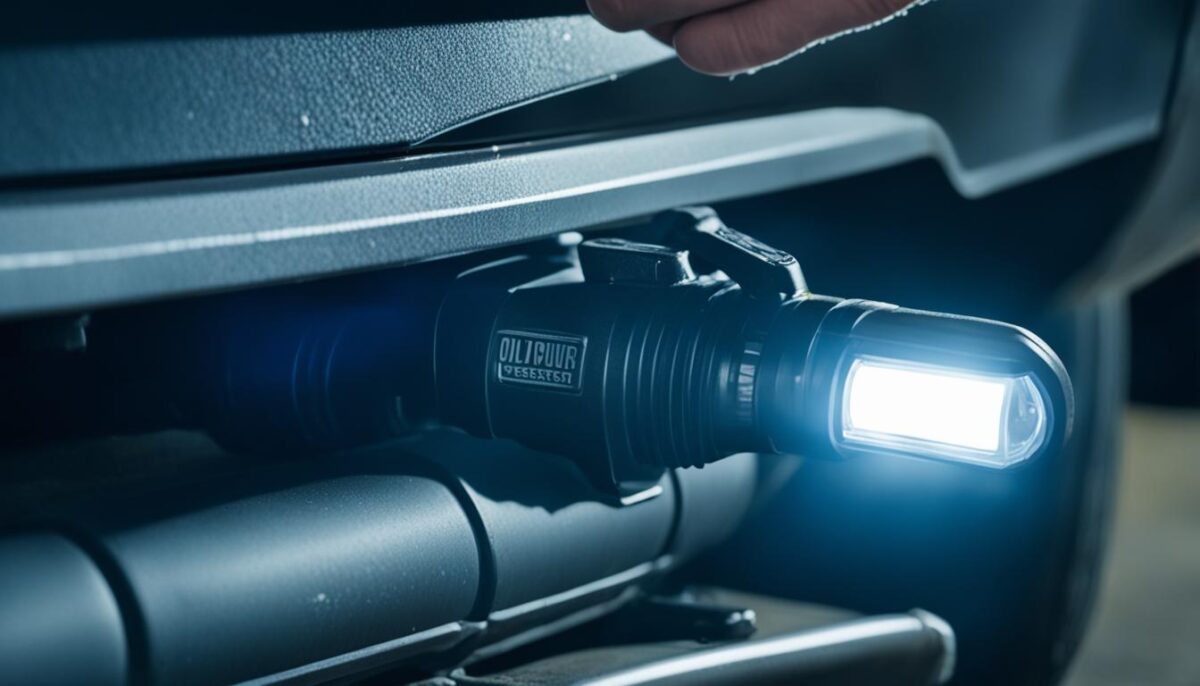Welcome to our comprehensive guide on how to become a car auction buyer! Whether you’re a car enthusiast looking for your dream vehicle or an entrepreneur exploring new business opportunities, becoming a car auction buyer can be an exciting venture. In this section, we will provide you with essential steps, tips, and tricks to start acquiring vehicles like a pro.
By diving into the world of car auctions, you can access an extensive range of vehicles at competitive prices. However, successfully navigating these auctions requires knowledge, research, and strategic decision-making. We’re here to be your guide throughout this thrilling journey.
Throughout this article, we will cover various aspects of becoming a car auction buyer. From understanding how car auctions work to researching auctions and vehicles, setting a budget and bidding strategy, participating in auctions, completing the purchase, and handling post-auction tasks, we have you covered.
But first, let’s define what it means to become a car auction buyer. As a car auction buyer, you will have the opportunity to bid on and purchase vehicles from a wide selection, including cars, trucks, SUVs, motorcycles, and more. Whether you plan to resell these vehicles, add them to your personal collection, or find the perfect ride for everyday use, car auctions provide a platform to fulfill your automotive desires.
Throughout our guide, you’ll gain valuable insights into the car auction buying process, learn how to research auctions and vehicles effectively, and discover tips and tricks to maximize your chances of success.
So, if you’re ready to embark on your journey to becoming a car auction buyer, let’s get started on this exciting adventure together!
Understanding Car Auctions
Before diving into the world of car auctions, it’s essential to understand how they work. Car auctions, also known as vehicle auctions, offer a unique opportunity to buy cars at competitive prices. In this section, we will discuss the car auction buying process, the different types of auctions, and tips for selecting the right auction for your needs.
The Car Auction Buying Process
The car auction buying process typically involves several key steps:
- Registration: To participate in a car auction, you’ll need to register with the auction house or platform. This process usually requires providing identification and necessary documentation.
- Auction Inspection: Before the auction begins, you’ll have the opportunity to inspect the vehicles up for bidding. It’s crucial to carefully examine the cars to assess their condition.
- Bidding: When the auction commences, you can start placing bids on the vehicles you’re interested in. It’s important to set a budget and stick to it to avoid overspending.
- Winning the Bid: If you have the highest bid on a vehicle when the auction ends, you’ll win the bid. Congratulations! You’re now the owner of a new car.
- Payment and Vehicle Pickup: Once you’ve won a bid, you’ll need to complete the payment process and arrange for the pickup or delivery of the vehicle.
Types of Car Auctions
Car auctions can take different forms, each with its unique characteristics. Here are some common types of car auctions:
- Public Auctions: These auctions are open to the general public, allowing anyone to participate and bid on vehicles.
- Dealer Auctions: Dealer auctions are typically restricted to licensed car dealers. These auctions offer a wider selection of vehicles that may not be available to the general public.
- Online Auctions: With the advancement of technology, online car auctions have become increasingly popular. These auctions allow you to bid on vehicles from the comfort of your own home.
Understanding the various types of car auctions can help you determine which one aligns with your buying preferences and needs.
Tips for Selecting the Right Auction
Selecting the right car auction is crucial to ensure a successful buying experience. Consider the following tips:
1. Research: Take the time to research different auctions and their reputation. Look for reviews and ratings from previous participants.
2. Auction Policies: Familiarize yourself with the auction’s policies, including registration fees, buyer’s premiums, and any additional costs.
3. Vehicle Selection: Determine if the auction offers the type of vehicles you’re interested in purchasing. Some auctions specialize in specific makes or models.
4. Location: Consider the location of the auction. If you’re attending an in-person auction, ensure it’s easily accessible for you.
By following these tips, you’ll be equipped to select the right car auction and make informed buying decisions.
Researching Auctions and Vehicles
Research is a vital step in becoming a successful car auction buyer. By conducting thorough car auction research, you can gather valuable information that will help inform your decision-making process. Here are some key aspects to consider:
Finding Reliable Sources
When researching auctions, it’s essential to find reputable sources that provide accurate and up-to-date information. Look for trusted websites, online marketplaces, and forums where experienced car auction buyers share their knowledge and insights.
Additionally, consider reaching out to local car dealerships, mechanics, or car enthusiasts who may have firsthand knowledge of upcoming auctions or can recommend reliable auction houses.
Understanding the Auction Catalog
The auction catalog plays a crucial role in your car auction research. It contains detailed information about the vehicles available for bidding, including their make, model, year, mileage, condition reports, and any additional notes or disclosures.
Pro Tip: Carefully review the auction catalog to identify the vehicles that align with your preferences and budget. Pay attention to maintenance records, accident history, and overall condition reports to ensure you make informed decisions.
Vehicle Inspection Before Bidding
Prior to placing a bid, it’s highly recommended to inspect the vehicles you’re interested in. This vehicle inspection allows you to assess their condition, identify any potential issues or damage, and estimate repair costs.
You can inspect a vehicle through various methods, such as:
- In-person inspection: Visit the auction site and thoroughly inspect the vehicle yourself or hire a trusted mechanic to perform a comprehensive inspection.
- Virtual inspection: Some auction platforms provide detailed photos, videos, or virtual tours of the vehicles, allowing you to assess their condition remotely. However, it’s advisable to supplement virtual inspections with in-person inspections whenever possible.
By conducting a thorough vehicle inspection, you will gain valuable insights that will help you determine the true value of the car and make confident bidding decisions.
Proper Documentation
During your research, make sure to gather all the necessary documentation required for participating in the auction. This may include proof of identification, auction registration forms, payment methods and requirements, and any additional paperwork specific to the auction house or region.
Having the appropriate documentation in order ensures a smooth and hassle-free experience when attending or participating in a car auction.
Remember, thorough car auction research is the foundation of successful car buying. By finding reliable sources, understanding the auction catalog, inspecting vehicles, and organizing the necessary documentation, you’ll be well-prepared to make informed decisions and secure the best possible deal at the auction.

Setting a Budget and Strategy
When participating in a car auction, it’s essential to set a budget and develop a bidding strategy to ensure a successful and satisfying buying experience. Your car auction budget will determine how much you can spend on a vehicle, while your bidding strategy will help you maximize your chances of winning the bid.
To determine your car auction budget, assess your financial situation and determine how much you can comfortably afford to spend. Consider factors such as your savings, funds available for car purchases, and any additional expenses like repairs or transportation. Setting a realistic budget will help you stay within your means and avoid overspending.
To develop an effective bidding strategy, research the market value of the vehicles you’re interested in. Look at similar models, their conditions, and recent auction prices. This information will give you a baseline and help you set a maximum bid for each vehicle you plan to bid on. It’s crucial to stick to your maximum bid to avoid overpaying.
Remember, a well-planned bidding strategy also involves patience and discipline. Avoid getting caught up in the excitement of the auction and bidding impulsively. Instead, take your time, observe other bidders, and wait for the right opportunity to place your bid.
“Setting a budget and developing a bidding strategy is crucial to avoid overspending and maximize your chances of winning a bid.”
Establishing a maximum bid is an essential part of your bidding strategy. This is the highest amount you’re willing to pay for a particular vehicle. Determining your maximum bid before the auction starts allows you to make decisions confidently and avoid bidding beyond your financial limit.
When establishing your maximum bid, consider the condition of the vehicle, its market value, and your overall budget. It’s crucial to stay disciplined and avoid getting emotionally attached to a specific car. If the bidding surpasses your maximum bid, it’s best to step back and focus on other opportunities that align with your budget.
By setting a budget and developing a bidding strategy, you’ll approach car auctions with a clear plan and increased confidence. Remember, thorough research and careful planning are key to making informed decisions and achieving successful outcomes.
Participating in Auctions
Participating in car auctions can be an exciting and rewarding experience. Whether you’re interested in live auctions or prefer the convenience of online bidding, understanding the bidding process and knowing how to navigate the auction environment is essential to make informed decisions and increase your chances of success.
When it comes to car auctions, there are two main types to consider: live auctions and online auctions. Live auctions offer the opportunity to physically attend the event and engage with other bidders and auctioneers directly. On the other hand, online auctions allow you to participate from the comfort of your own home or office, providing convenience and accessibility.
Regardless of the type of auction you choose, it’s essential to familiarize yourself with the specific bidding process for each platform. In live auctions, you may need to register as a bidder and obtain a bidding paddle, which you will use to signal your bids. Online auctions typically require you to create an account and submit your bids electronically through a secure bidding system.
It’s important to have a clear plan and strategy in place before participating in any auction. Research the vehicles that will be up for bidding, set a budget, and determine the maximum bid you’re willing to make. Take advantage of any pre-auction inspections or reports to assess the condition of the vehicles you’re interested in.
Remember, it’s crucial to stay focused and avoid getting caught up in bidding wars that may drive up the prices. Set a realistic budget and stick to it to ensure a successful and satisfying auction experience.
Key Points:
- Participating in car auctions involves understanding the bidding process and navigating the auction environment.
- There are two main types of auctions: live auctions and online auctions.
- Familiarize yourself with the specific bidding process for each platform.
- Research the vehicles, set a budget, and determine your maximum bid.
- Stay focused during the auction and avoid getting caught up in bidding wars.
Completing the Purchase
Congratulations on winning the bid! Now it’s time to complete the purchase and take ownership of your newly acquired vehicle. In this section, we will guide you through the necessary steps to ensure a smooth and successful transaction.
Understanding Auction Fees
Before finalizing your purchase, it’s essential to have a clear understanding of the auction fees involved. Auction fees are charges imposed by the auction house to cover administrative costs and other expenses. These fees can vary from auction to auction, so it’s crucial to review the auction terms and conditions or consult with the auction staff to determine the exact fees associated with your purchase. Being aware of these fees will help you accurately calculate the total cost of the vehicle and avoid any surprises.
Exploring Payment Methods
When it comes to paying for the vehicle, auctions typically offer various payment methods to accommodate different buyers’ preferences. Common payment options include cash, wire transfer, certified check, credit/debit card, or financing. Some auctions may require a deposit upfront, with the remaining balance due within a specific timeframe.
It’s advisable to inquire about the accepted payment methods before the auction or immediately after winning the bid. This will give you time to make the necessary arrangements and ensure you have the funds available for payment on the designated date.
Arranging Vehicle Pickup or Transportation
Once the payment is completed, you will need to arrange for the pickup or transportation of the vehicle. Depending on the auction’s location and your preferences, you have several options:
- Pickup: If you’re within a reasonable distance of the auction, you may choose to personally pick up the vehicle. Contact the auction house to schedule a pickup time and ensure you bring the necessary documentation, such as a valid ID and proof of purchase. It’s also advisable to inspect the vehicle thoroughly upon pickup to ensure its condition matches the auction description.
- Shipping: If you’re unable to pick up the vehicle or the auction is located in a different city or state, you can arrange for shipping or transportation services. There are various companies that specialize in vehicle transportation, and it’s essential to research and choose a reputable provider. Coordinate with the auction house to ensure a smooth handover of the vehicle to the shipping company.
Regardless of whether you choose to pick up the vehicle yourself or opt for shipping, it’s crucial to communicate with the auction house and make the necessary arrangements promptly. This will help avoid any potential delays or complications in receiving your vehicle.
Completing the purchase includes understanding auction fees, exploring payment methods, and arranging vehicle pickup or transportation. By following these steps diligently, you’ll be well-prepared to finalize your purchase and embark on your exciting journey as a car auction buyer!
Post-Auction Tips
Once you’ve successfully won a bid at a car auction, there are a few important post-auction tasks that need to be addressed. These tasks ensure a smooth transition and help you get your newly acquired vehicle on the road quickly and legally.
Vehicle Registration
One of the first things you need to do after purchasing a vehicle at an auction is to register it. Vehicle registration is a legal requirement that varies from state to state. It involves submitting the necessary paperwork and paying the required fees to the appropriate government agency. This process ensures that your vehicle is officially recognized by the authorities and that you can legally operate it on public roads. Be sure to check your state’s specific requirements and deadlines for vehicle registration to avoid any penalties or fines.
Title Transfer
Transferring the title of the purchased vehicle is another vital step in the post-auction process. The title is a legal document that proves ownership of the vehicle. To transfer the title to your name, you will need to complete the necessary paperwork and pay any applicable fees. This ensures that you become the legal owner of the vehicle and have the proper documentation to prove it. Similar to vehicle registration, the requirements for title transfer may vary by state, so it’s crucial to familiarize yourself with the specific regulations in your area.
Vehicle Inspection
After acquiring a vehicle from an auction, it’s essential to thoroughly inspect it to ensure its condition meets your expectations. Conducting a comprehensive vehicle inspection allows you to identify any damage or issues that may not have been apparent during the auction. It’s advisable to have a trusted mechanic or automotive professional perform a detailed inspection, checking the vehicle’s mechanical components, body condition, and overall safety. This inspection will help you make informed decisions about any necessary repairs or maintenance that may be required.

By addressing these post-auction tasks promptly and thoroughly, you can ensure a smooth transition from the auction to the road. Completing vehicle registration, title transfer, and a comprehensive inspection will give you peace of mind and help you enjoy your newly acquired vehicle without any legal or safety concerns. Now that you’re armed with these post-auction tips, you can confidently navigate the process and make the most of your car auction buying experience.
Tips for Success as a Car Auction Buyer
As a car auction buyer, there are several tips and strategies you can utilize to enhance your auction experience and improve your chances of winning bids.
Firstly, thorough research is essential. Take the time to understand the auction process, research the vehicles you’re interested in, and familiarize yourself with the auction catalog. This will enable you to make informed decisions and bid confidently.
Additionally, setting a budget and sticking to it is crucial. Determine your maximum bid before entering the auction, and resist the temptation to exceed it. This will help you avoid overspending and ensure a successful auction experience.
Lastly, staying up-to-date with the latest trends in the industry can give you an edge. Keep an eye on market fluctuations, popular models, and emerging technologies. This knowledge will help you identify valuable vehicles and make competitive bids.

